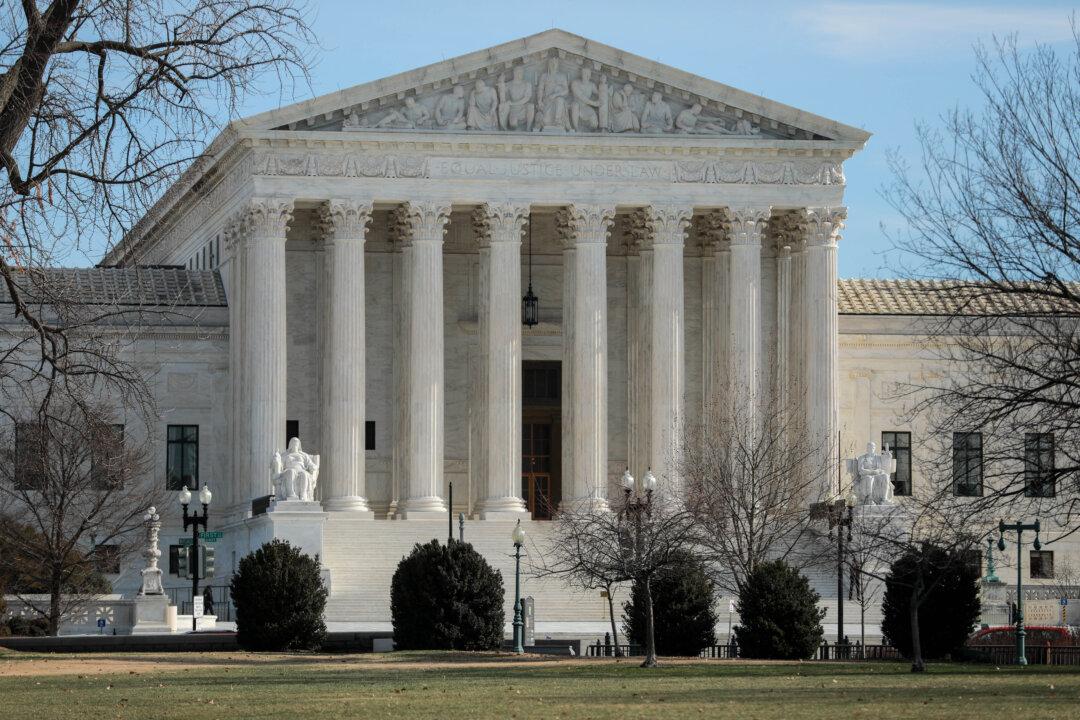The Supreme Court said all nine justices are healthy and are following public health guidelines while adjusting to the disruptions caused by the Chinese Community Party (CCP) virus that saw the court’s March oral arguments postponed.
Court spokesperson Kathy Arberg told news outlets that the nine justices participated in a private conference that are held regularly on Fridays to consider requests such as for cases to be added to the docket. Some of the justices participated remotely, however. She said the justices are healthy and continuing their business while following public health guidance, which includes “forgoing their traditional handshake” before meetings.




